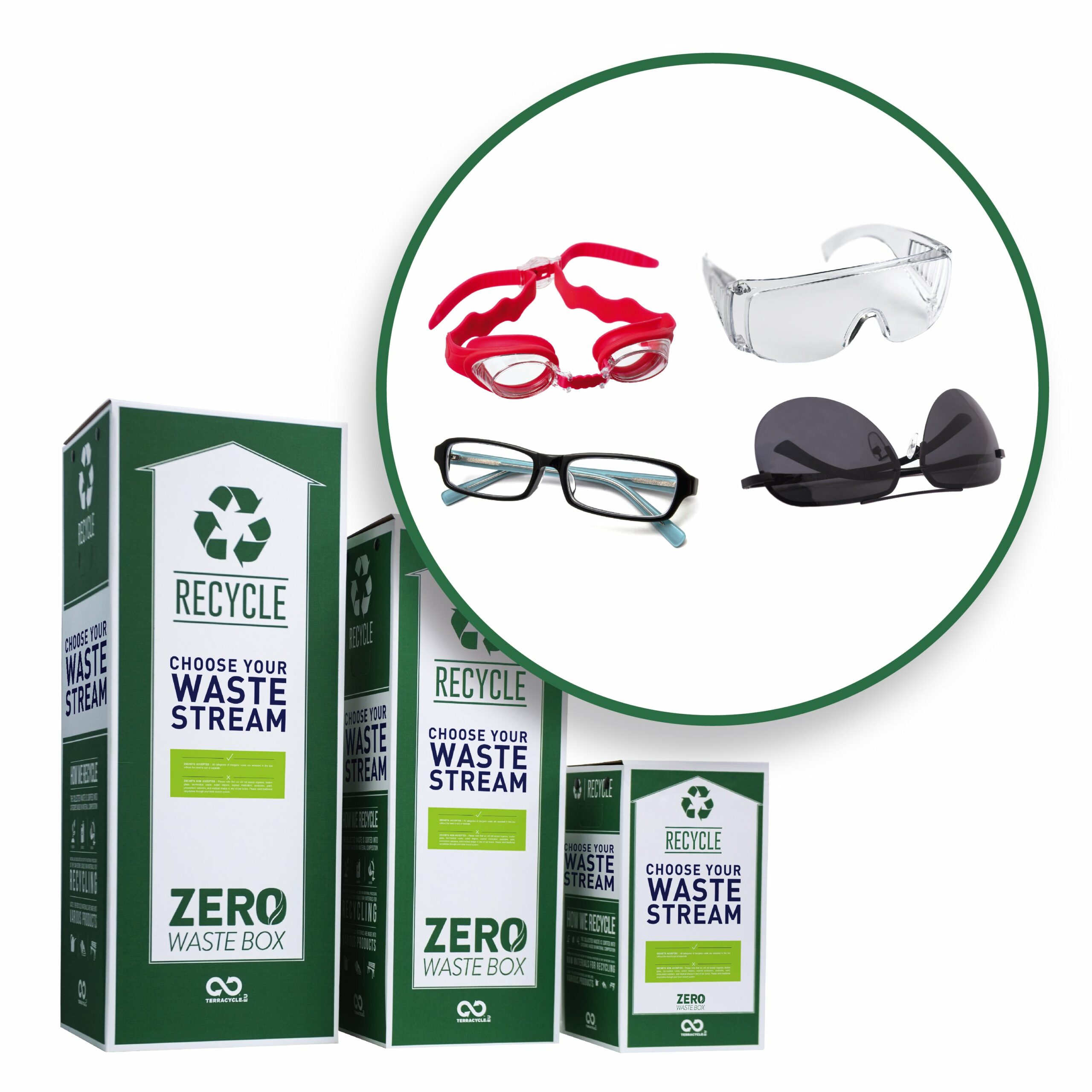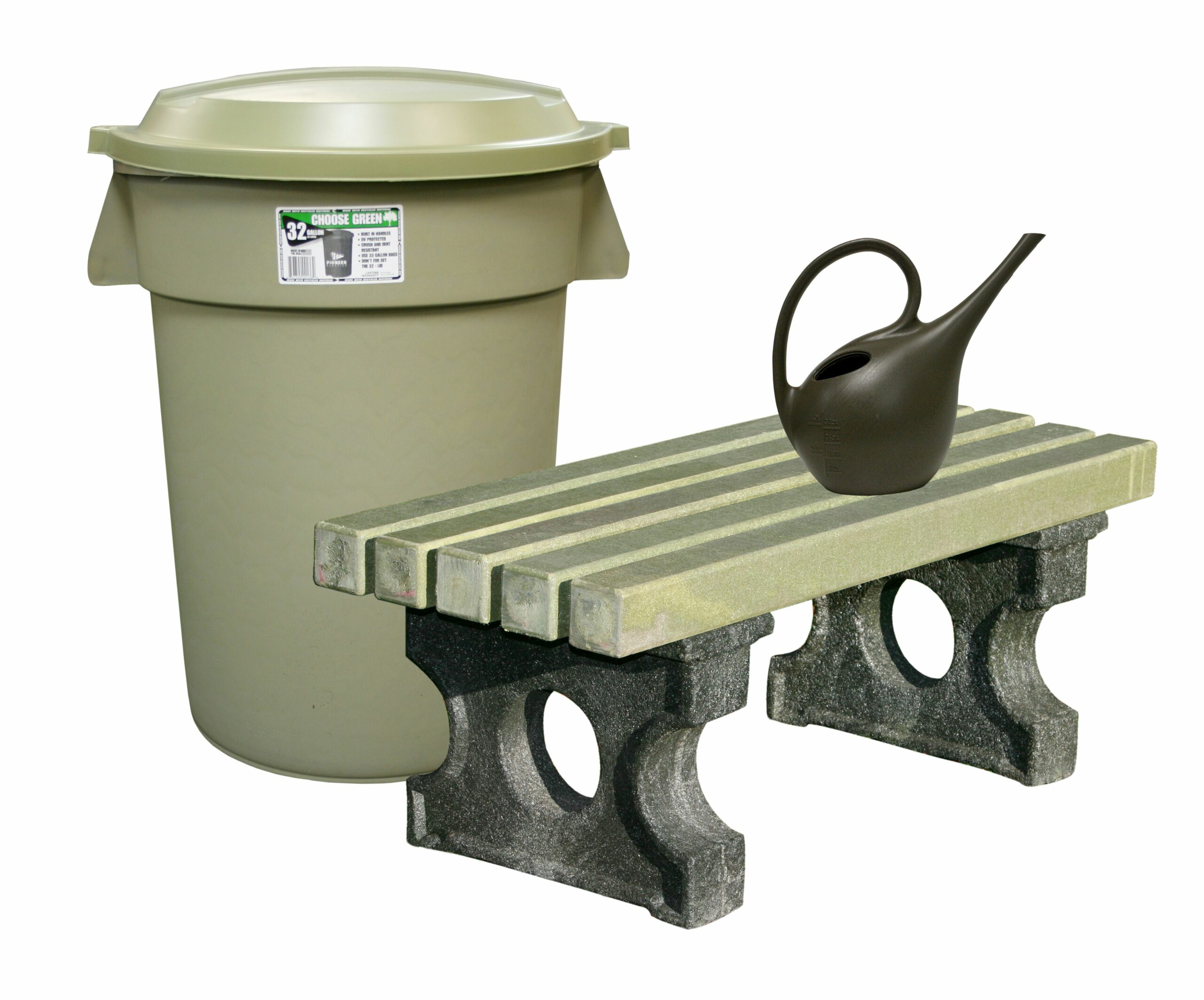Thinking Green: Recycling optical products
Reducing our use of materials and reducing the amount we waste are two key recycling strategies – but we also need to look at recycling some key items.
Patients often ask how they can recycle frames, spectacle lenses and contact lenses. In this quick round-up, ABDO’s Thinking Green campaign looks at what’s available currently to assist optical practices and their patients recycle optical waste.

TerraCycle accepts eyewear waste products via its paid-for scheme
TerraCycle for frames and contact lenses
There is a well-established contact lens recycling project run by TerraCycle and sponsored by Johnson & Johnson Vision, via its Acuvue Contact Lens Recycle Programme, which is free to consumers. It enables people to recycle their contact lenses and blister packs – whatever the brand. However, used contact lens cases and solution bottles should continue to be placed into regular household recycling.
TerraCycle doesn’t offer a free programme for spectacle frames or lenses at the moment, but is interested in working with a brand willing to sponsor a National Recycling Programme. It does, however, have a paid-for solution with its Zeros Waste Boxes. The price of each Zero Waste Box covers the cost of TerraCycle sending it to the customer, who will then send it back when it’s full using a pre-attached and pre-paid shipping label, and the cost of the recycling process itself.
TerraCycle currently offers a Contact Lenses and Packaging Zero Waste Box and an Eyewear Zero Waste Box, through which it can accept spectacle lenses and frames.
Once the contact lenses and packaging, or spectacle frames and lenses, are collected, they are sent to TerraCycle’s Materials Recovery Facility (MRF) in the UK for sorting and processing. The waste is first manually separated into categories, such as rigid plastics, metals, flexible plastics and glass.
The separated rigid plastic is shredded, cleaned and turned into recycled plastic raw materials that is then used to make plastic lumber. The lumber is used to make a range of products such as garden beds, decks, fences and benches. It can even be used for applications such as community playgrounds.
The flexible plastics will similarly be shredded and melted down into a reusable flake or pellet for similar applications. Metals will be separated by specific type and melted into ingots for re-use, and glass will be cleaned and sorted by colour for processing. It is then crushed and melted to be used in new glass products or other applications.
New for 2022: Recycline for plastics and metals
Coming this March, Recycline aims to offer spectacle recycling for the optical industry, recovering and reusing plastic and metals.

Recycled plastic products
A representative for Recycline explained: “We will be launching our nationwide spectacle recycling scheme towards the middle March this year, and this scheme will be available exclusively to all optical stores operating within the UK. The scheme will be one in which participating opticians will be provided with a shop floor collection box made from hard-waring and recyclable correx, and printed with our company logo and the name of the scheme.
“When the boxes are full, the participating store simply empties the contents into a suitable box for posting to us at our facility in Essex. We guarantee 100 per cent sustainability for your spectacle waste, employing processes that are both efficient and environmentally friendly, using a number of specialist machines to separate the metal from the plastic.
“Metal is sent to market and plastic is currently donated to a number of partner companies free of charge as an aggregate and bulking agent for other recyclable plastic manufactures. Both materials are reintroduced back into the circular economy.”
Recycline has also been working with on a line of plastic and metal shop fixtures, fittings and cabinets, which will be 100 per cent made from recycled spectacles and only available to participating opticians from within the UK optical industry.
If you’re an optician, you can sign up to Recycline’s tabletop and shop floor collection box scheme. Subscriptions will cover the cost of postage and a £25 deposit per printed correx shop floor box, which will be refunded upon return.
Refactory offers practices the chance to purchase a box to recycle spectacles with plastic lenses, sunglasses, contact lenses, contact lens cases, bottles and packets. For a fee, a box will be delivered and collected once it’s been filled it up. The plastic is recycled into storm board, which the company uses for shop fitting and furniture.
A further project to recycle frames and lenses is in development.
Anyone with resources to add to this line-up can email Antonia Chitty, ABDO head of communications and IT, at achitty@abdo.org.uk
Want more ideas? Use the ABDO Sustainability Self-assessment Tool and see what you could do to make your practice more sustainable.
Don’t miss ABDO’s new Thinking Green series, offering practical everyday tips to live and work more sustainably, beginning in the February issue of Dispensing Optics magazine.